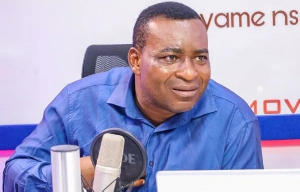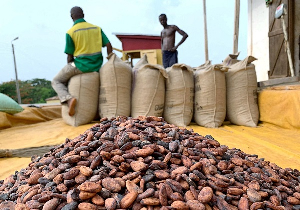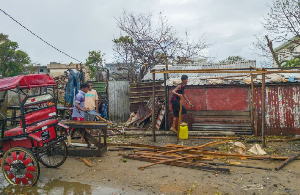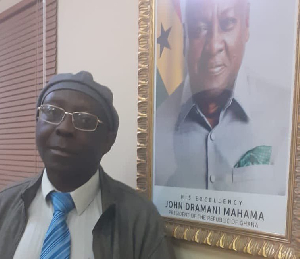The Women in Energy Ghana, a platform that seeks to promote and increase the number of women in leadership roles in the energy sector, has been launched with a call on stakeholders to adopt a voluntary framework to close the gender gap in the Industry.
Dr Mohammed Amin Adam, a Deputy Minister of Energy, who made the call, said efforts must also be made to overcome cultural and societal stereotypes that work against effective women participation in the energy sector.
“There is no doubt wide gender gap exist in the energy sector, especially in Africa where most technical disciplines are perceived to be the preserve for men,” he said.
Research has shown that women participation in the energy sector at 25 percent globally is among the lowest in any sector and only higher than the manufacturing sector at 23 percent.
Despite this low participation, strong evidence suggests that there was positive relationship between increased women participation and improved company performance.
“It is important to note therefore that where ever you have increased women participation the results can be outstanding,” he said.
Dr Adam said while in Ghana women participation was quite high at the middle-level management where managers have direct supervision responsibility on the job, the trend declines in a move up to the top management level.
He said several reasons had been adduced to explain the trend, including fewer opportunities to compete for at the top management level and perception of the lack of highly qualified women.
“This calls for collective action on the part of stakeholders,” and encouraged companies to appoint women as they were competent when they had the opportunity to perform.
Dr Adam said the Ministry of Energy supported the quest for women’s contribution and leadership and was pursuing a number of initiatives such as Energy sector career sensitisation aimed to sensitise female particularly in the high schools with the career opportunity in the sector.
The accelerated oil and gas capacity building programme being implemented to build critical manpower for the industry and to promote the enrolment of female candidates in particular.
Under the programme the Petroleum Commission is determined to achieve 30 per cent women participation in all training programme.
Another area is the local content policy that enjoins companies to ensure gender balance in their annual procurement.
Dr Adam said the Ministry was also in discussion with stakeholders to develop a gender equation policy for the ministry to map out strategies to further mainstreaming of gender in the industry.
On his part, Mr Kweku Awotwi, Managing Director of Tullow Ghana Limited and Executive Vice President Tullow Oil Plc, called for deliberate action by the oil and gas companies to promote and increase women active participation in the industry.
He said one way to strengthen women’s participation in the Energy sector was to encourage young women to take up courses in the sciences, and mentored to develop interest in the energy sector.
“One way is to support and promote STEM education and programmes for women, grow our female human resource and build their capacity for what some might describe as complex fields of endeavour. We believe it is important to start early in the education process to encourage our young women in the sciences,” he said.
“Of course, companies themselves must establish gender policies that ensure women are empowered and feel comfortable working in our industry.”
Mrs Adelaide Addo-Fening, Chair for Women in Energy Ghana, said the platform was setting itself up to provide information as to how companies could become more gender balance.
She said the platform will provide examples of policy initiatives as to how to review business processes so that it was favourable for women.
It will also draw on the experiences of women who were in leadership roles to input into policies at the governmental and organisational level and to play that role of bringing gender perspective to issues.
The WiE Board of Directors made up of Adelaide Addo-Fening as Chair, Harriet Amissah-Arthur, Ivy Owusu, Linda Vasnani, Charles Darku and Theophilus Ahwireng as members, was introduced to the gathering.
Business News of Sunday, 16 February 2020
Source: GNA
Minister calls for framework to close gender gap in energy sector
 Research has shown that women participation in the energy sector at 25% globally is among the lowest
Research has shown that women participation in the energy sector at 25% globally is among the lowest












